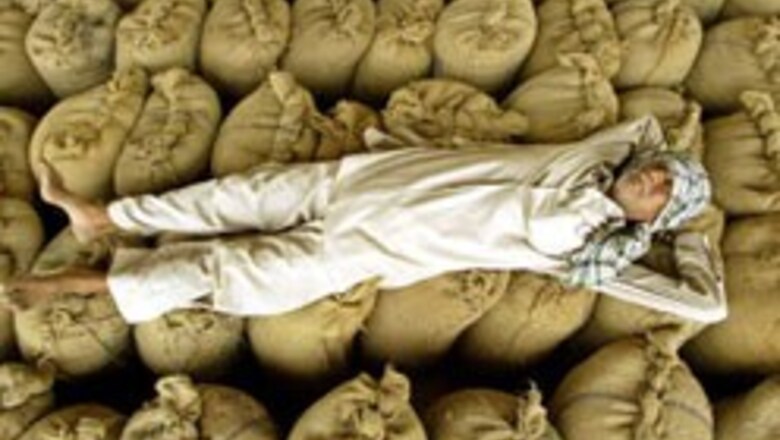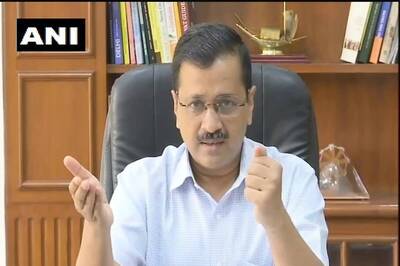
views
New Delhi: India's decision to import three million tonnes of wheat to replenish dwindling government stocks will not be sufficient to tide over a shortfall and douse rising prices, a top industry official said on Wednesday.
"This step is not enough, it is at best a half-hearted measure," Chairman of the All India Grain Exporters' Association , D P Singh, told Reuters in an interview.
India's State Trading Corporation had floated a tender on Monday to import the grain between July and October as government purchases from farmers were unlikely to exceed 11 million tonnes against a target of 16 million.
Singh said the import would take many months to arrive and would only help to partly plug the hole in buffer stocks with the government.
Every year the government buys wheat and rice from the farmers at a fixed price to maintain a buffer and meet demand for various welfare programmes and sale to the poor at cheaper rates.
"Import is a good step but does not solve the problem of flour millers or the general public," Singh said.
"Flour prices will keep going up if the mills continue to buy wheat at high rates," he added.
India's more than one billion people annually consume about 72 million tonnes of wheat, used mainly for flour and in bread and biscuits.
The farm ministry on Tuesday scaled down this year's wheat production to 71.5 million tonnes from earlier estimates of 73 million after rains and hailstorms damaged the crop in March.
India needs to maintain a large stockpile of the grain to control prices, and produces only one wheat crop a year, grown in northern and central India.
Singh said the government should allow state-agencies to import close to two million tonnes of wheat duty-free for use by flour millers to contain spiralling prices.
Traders have been sitting on stocks in anticipation of even higher prices. "Once they allow imports for millers, most of the hoarded stocks will come to the market and douse prices," Singh said.
Prices of average quality wheat was around 835 rupees per 100 kg on Wednesday, compared with Rs 700 at the same time a year ago and trends indicate that by July prices would touch Rs 900.
"Farmers are not making any money, and why should the public at large be made to pay for the margins of traders," said Singh.
Traders said speculative pressure on wheat futures was driving spot prices higher.
India had contracted to buy wheat in March for the first time in six years, but the initial purchase of 500,000 tonnes from Australian exporter AWB Ltd. failed to douse rising domestic prices.
The new tender closes on May 18, and deliveries are scheduled at ports in the western and eastern coast.




















Comments
0 comment